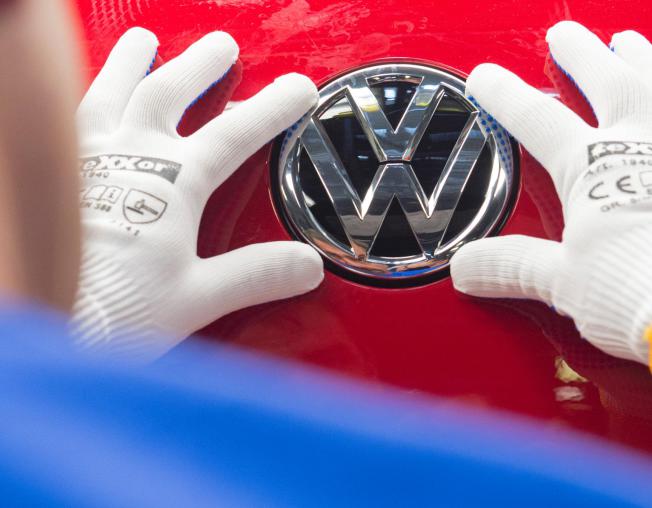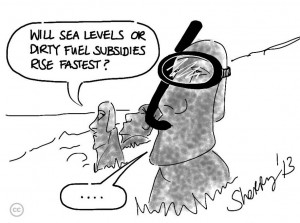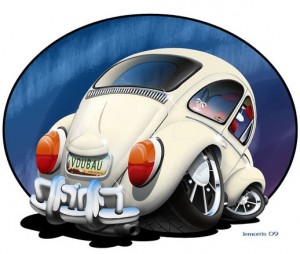Leonid Bershidsky writes: Deezer, the Paris-based music streaming service, will be the first company in that budding industry to go public. Its initial public offering prospectus, for a share sale toward the end of the year, provides fascinating insight into how the streaming business works — or rather, how it could work.
The service is an important global player (though it isn’t well-known in the U.S., where it launched last year). It operates in 180 countries and boasts 3.8 million revenue-generating subscribers. Spotify, the streaming industry leader, claims “more than 20 million.” Apple Music has only reported 11 million trial subscribers so far. Thanks to the IPO filing, though, Deezer is the only company in the industry to provide validated numbers.
Of the 3.8 million, only 3 million actually listen to music from the Deezer catalog — the industry’s biggest, with 35 million tracks, 5 million more than Spotify or Apple Music. The rest are so-called “inactive bundle subscribers.” Deezer sells subscriptions bundled with various devices, such as audio equipment. About 1.5 million such customers use the service at least once a month. Another 1.5 million heard about the service or saw its advertising before subscribing.
This user base brings in about 96 percent of Deezer’s revenue. The rest comes from advertising, played to non-paying users. In the six months ended June 30, it made 93 million euros ($104 million) in revenue and paid back 76.4 percent of that to rights owners — a bit more than the 70 percent Spotify says it returns or the 71.5 percent claimed by Apple. The gross margin isn’t bad, but it’s easily eaten up by development, marketing and administrative expenses. For the six months ended June 30, Deezer reported a 12 million euro loss, practically unchanged from the same period last year, though revenue increased 41 percent.
This is standard for the industry. Spotify, too, loses money. Apple Music hasn’t even started charging subscribers yet.
Both Deezer and Spotify hoped that their user bases eventually would be big enough for revenue growth to overtake increased development and marketing budgets. It’s not really happening, though: Costs are growing in step with revenue. So the services keep putting off their break-even point. In the IPO filing, Deezer uses these industry revenue projections from Enders Research:
It’s probably true that streaming revenues will surpass those from sales of CDs and vinyl records, as well as those from downloads from stores such as iTunes. In the U.S., streaming has already beaten physical sales, and downloads will probably yield leadership next year because they’re dropping. Streaming is growing even faster in Europe — in Sweden, Spotify’s home country, it accounts for 70 percent of recorded music revenue, and in France, Germany and the U.K., listeners also are switching to streaming services. So Enders’ prediction that streaming will become the leading channel for music sales globally in 2018 is probably conservative. It’s far from certain, though, that total music sales will start growing this year: They’ve been on their way down since 2012.
Compared with popular music’s heyday, the industry is far less influential and less interesting. Larger-than-life stars are hard to come by — there’s no new Michael Jackson or Kurt Cobain, no new giant bands such as U2 or Radiohead.
Yet Deezer is betting on that growth and, at the same time, hoping that people will subscribe to more than one service. It may be right: I now use three services because my favorite music — including Russian, Polish, Ukrainian, German and French groups — isn’t all available on any single outlet. Yet there is a tremendous amount of overlap between the biggest players’ catalogs: After all, they deal first with the same big record companies and then with smaller publishers if they have the resources left.
France is the biggest market for the Paris-based company, just as Spotify is especially popular in Scandinavia. It’s possible that, with the exception of Apple, which has a large user base throughout the world, successful companies will be strong in their home territories, providing access to the music that people there most enjoy. That, however, would limit user base growth.
Deezer hopes the IPO will value it at 1 billion euros. That’s a much more modest number than Spotify’s valuation of $8 billion from its latest funding round, and it should be achievable — streaming is clearly the music industry’s future, and Apple, despite its enormous power, won’t be able to eliminate all the competition.
The lack of great content that could boost interest in streaming, and in popular music in general, remains the biggest problem. Streaming may have contributed by making is next to impossible for new artists to make any money from recording their music. Deezer, Spotify, Apple Music and others are taking over a shrinking market, so profits will remain elusive.











